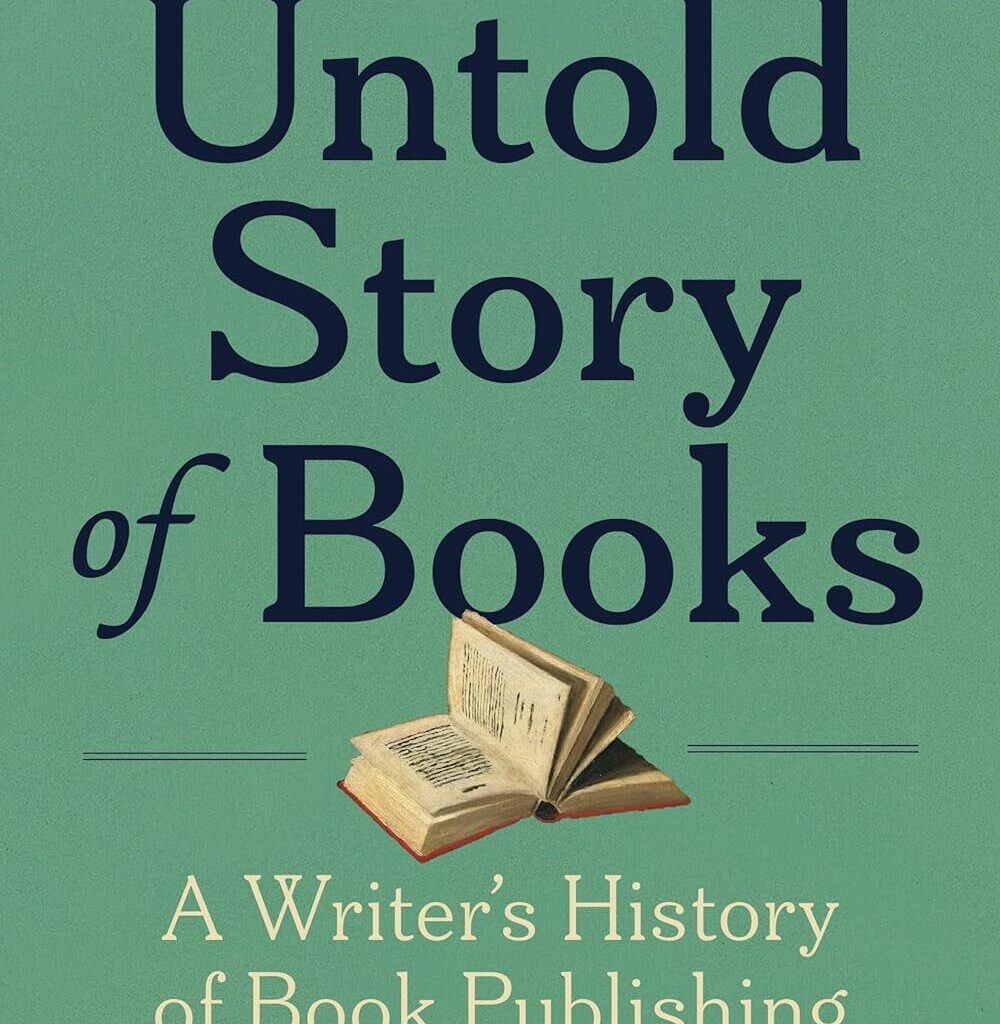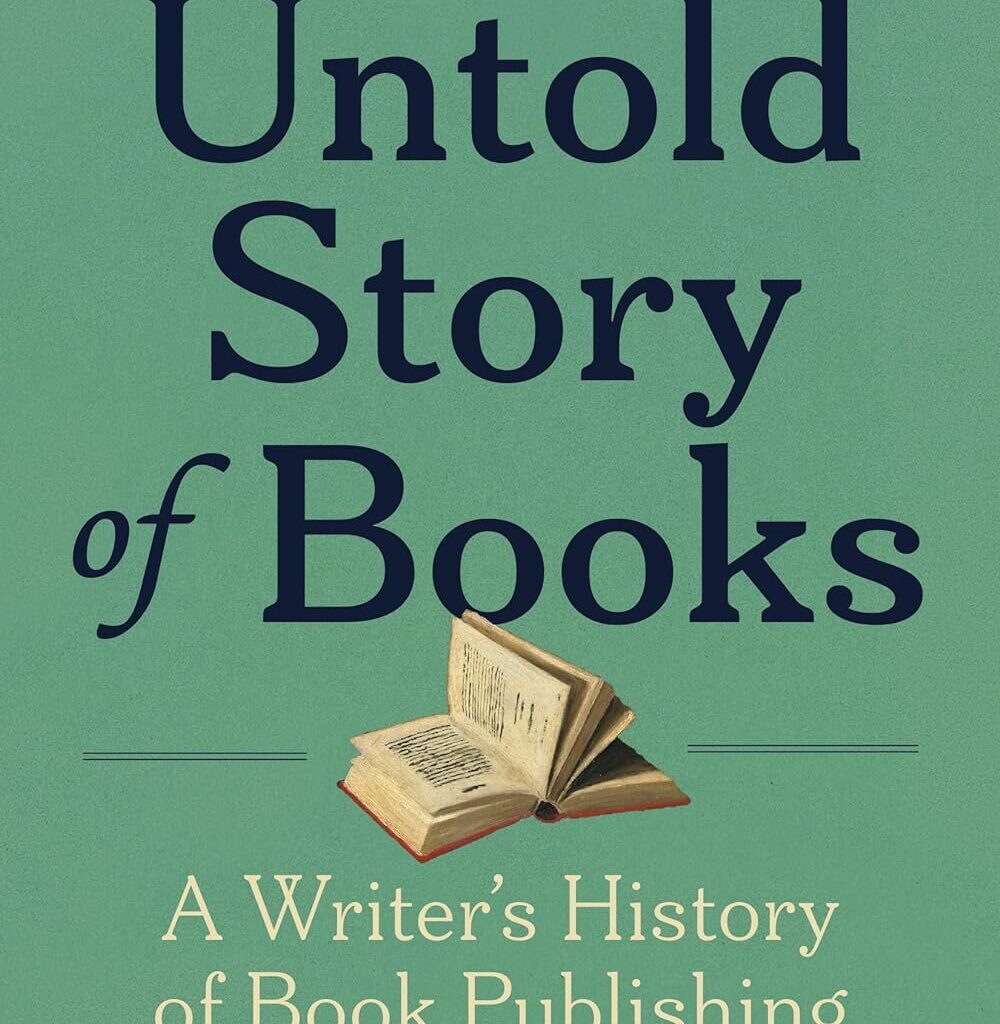
The Untold Story of Books: A Writer’s History of Book Publishing
In The Untold Story of Books: A Writer’s History of Book Publishing, author Michael Castleman offers a captivating and comprehensive exploration of the evolution of the book industry from Gutenberg to the present day. Through his engaging narrative and meticulous research, Castleman provides a fresh perspective on the world of publishing, shedding light on the often-overlooked aspects of this complex and ever-changing field.
Summary of the Novel
Castleman’s book is structured around three distinct eras of book publishing, each defined by the technological advancements that shaped the industry. He begins by tracing the historical roots of publishing, examining how the invention of the printing press revolutionized the production and distribution of books. The author then delves into the subsequent eras, exploring how new technologies, such as the steam-powered printing press and the rise of mass-market paperbacks, continued to transform the industry.
Throughout the narrative, Castleman weaves in fascinating anecdotes and little-known facts that illuminate the idiosyncrasies of the book business. From the origins of the term “blurb” to the role of the Erie Canal in establishing New York as the publishing capital of the United States, these details add depth and color to the author’s analysis.
Key Events and Plot Points
1. The Invention of the Printing Press
Castleman begins his exploration by highlighting the pivotal moment when Johannes Gutenberg revolutionized book production with the invention of the printing press. This technological breakthrough paved the way for the mass production of books, making them more accessible to a wider audience.
2. The Rise of Mass-Market Paperbacks
The author delves into the impact of mass-market paperbacks on the publishing industry, particularly during the mid-20th century. He examines how this format democratized reading, making books more affordable and portable for the average consumer. Castleman also explores the role of iconic publishers like Penguin Books in shaping the success of mass-market paperbacks.
3. The Advent of Digital Publishing
As Castleman’s narrative progresses, he turns his attention to the digital age and its influence on the book industry. He discusses the emergence of e-books, and the challenges faced by traditional publishers in adapting to this new format. The author also explores the rise of self-publishing and the democratization of authorship in the digital age.
4. The Economics of Publishing
Throughout the book, Castleman provides a detailed analysis of the financial aspects of publishing, offering insights into the challenges faced by authors and publishers alike. He examines the role of advances, royalties, and the shifting power dynamics between authors and publishers in the face of technological change.
5. The Future of the Book Industry
In the final section of the book, Castleman looks ahead to the future of the book industry, exploring the potential impact of emerging technologies and changing reader habits. He discusses the ongoing debate surrounding the longevity of print books and the need for publishers to adapt to the evolving landscape of the publishing world.
Themes
The Democratization of Knowledge
A central theme in The Untold Story of Books is the democratization of knowledge and the role of publishing in making information more accessible to the masses. Castleman traces how each technological advancement, from the printing press to digital publishing, has expanded the reach of books and empowered readers.
The Resilience of the Book Industry
Despite the challenges posed by technological change, Castleman’s narrative highlights the resilience of the book industry. He demonstrates how publishers and authors have consistently adapted to new formats and distribution methods, ensuring the continued relevance of books in an ever-evolving cultural landscape.
The Importance of Storytelling
Underlying Castleman’s exploration of the publishing industry is a deep appreciation for the art of storytelling. The author emphasizes the enduring power of books to captivate audiences and shape cultural narratives. Through his engaging prose and insightful analysis, Castleman underscores the vital role of publishing in preserving and disseminating stories.
Conclusion
The Untold Story of Books is a must-read for anyone interested in the history and future of the publishing industry. Michael Castleman’s comprehensive and engaging narrative offers a fresh perspective on the evolution of book publishing, shedding light on the complexities and idiosyncrasies of this dynamic field.
By tracing the technological advancements that have shaped the industry, Castleman provides valuable insights into the challenges and opportunities faced by authors, publishers, and readers alike. His exploration of the democratization of knowledge and the resilience of the book industry serves as a testament to the enduring power of storytelling and the written word.
As the publishing world continues to evolve in the face of digital disruption, The Untold Story of Books offers a timely and thought-provoking perspective on the future of the industry. Castleman’s work is a must-read for anyone who loves books, whether as a reader, writer, or industry professional, and a valuable resource for understanding the rich history and ongoing significance of the publishing world.
Read Full Novel
The Untold Story of Books Goodreads


